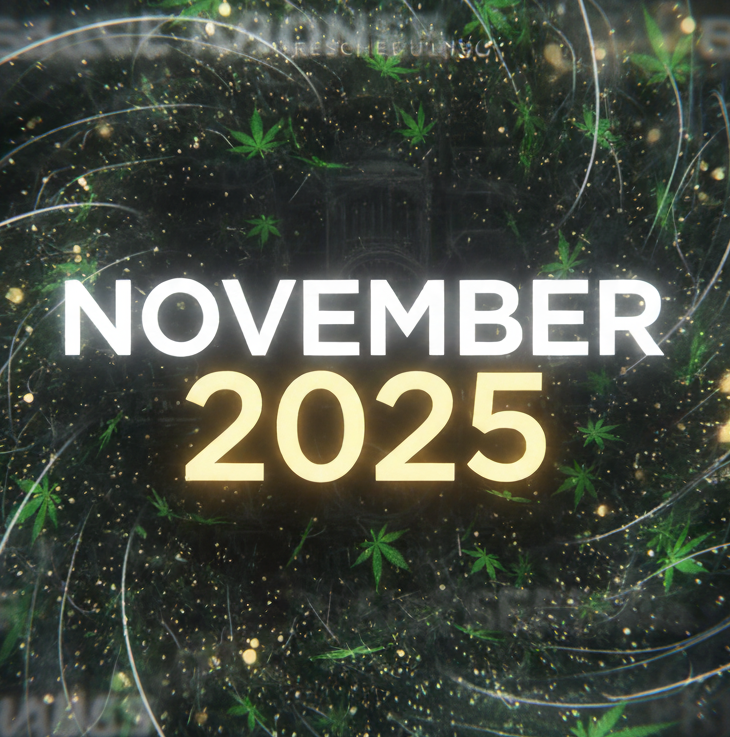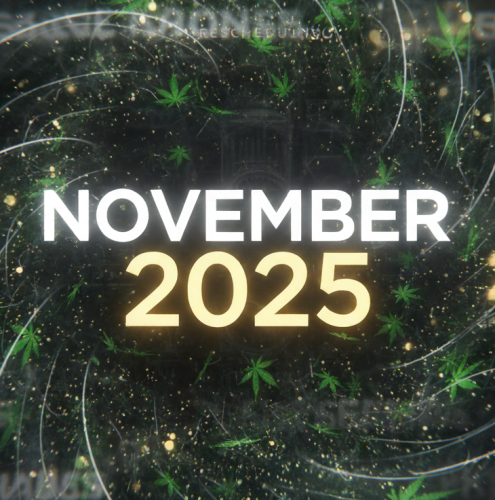The legal landscape of cannabis in the United States continues its rapid and complex evolution, marked by significant federal actions and ongoing state-level reforms as of November 2025. While the overall trend toward greater acceptance persists, new federal restrictions on hemp-derived products and the stalled-but-still-pending potential for federal rescheduling have created an era of both opportunity and uncertainty for consumers, businesses, and policymakers.
Federal Policy: The Hemp Crackdown and Rescheduling Delays
The most immediate and impactful change at the federal level is a dramatic new restriction on hemp-derived THC products, which has already been signed into law.
The Hemp-Derived THC Ban
In a provision tucked into a recent spending bill, Congress acted to close the “hemp loophole” created by the 2018 Farm Bill. The legislation aims to recriminalize most consumable products containing hemp-derived psychoactive compounds like Delta-8 and Delta-10 THC.
Key components of the new federal hemp definition and restrictions:
-
Total THC Limit: Products are now strictly limited to 0.4 milligrams of total THC per container, in addition to the existing 0.3% Delta-9 THC limit on a dry-weight basis. This minimal threshold effectively bans the vast majority of popular, intoxicating hemp-derived gummies, beverages, and vapes currently on the market.
-
Redefining “Hemp”: The 0.3% limit now applies to Total THC, including THCA (tetrahydrocannabinolic acid), which converts to Delta-9 THC when heated. This closes a previous loophole that allowed high-THC flower to be sold as “hemp” if its pre-heated Delta-9 THC level was below the threshold.
-
Prohibition of Synthetic Cannabinoids: Compounds that are chemically altered or synthesized from hemp biomass are now explicitly prohibited.
This federal action, effective one year from its enactment, is expected to devastate a multi-billion-dollar industry, pushing the issue of regulating these products back to the individual states.
The Schedule III Stalemate
The long-awaited federal rescheduling of marijuana remains “ongoing” and is currently stalled.
-
Background: The Department of Health and Human Services (HHS) previously recommended that the Drug Enforcement Administration (DEA) move cannabis from the highly restrictive Schedule I of the Controlled Substances Act (CSA) to the less restrictive Schedule III.
-
Status Update: The DEA published a Notice of Proposed Rulemaking in 2024, but the process has been suspended pending the resolution of an appeal. As of November 2025, the final decision is in a holding pattern.
-
Implications (If Passed): Rescheduling to Schedule III would acknowledge a currently accepted medical use and lower the potential for abuse compared to Schedule I. This change would primarily benefit the state-legal cannabis industry by:
-
Relieving the massive federal tax burden under IRC Section 280E, allowing businesses to deduct standard operating expenses.
-
Potentially increasing opportunities for scientific and medical research.
-
Note: Marijuana would still be a federally controlled substance, and state-legal recreational programs would still be technically illegal under federal law.
-
State-Level Reform
Despite the federal uncertainty, state-level reform continues to push forward, primarily focusing on medical and adult-use legalization.
-
Medical Expansion: Currently, 40 states, three territories, and the District of Columbia permit the medical use of cannabis products. A notable development in 2025 includes Texas expanding its low-THC medical program. It is now classified as a comprehensive medical cannabis law.
-
Adult-Use Legalization: Twenty-four states, three territories, and D.C. now allow or regulate cannabis for adult, non-medical use. While no new states have fully legalized adult-use via ballot measure in 2025, many state legislatures continue to debate and advance bills to legalize, decriminalize, or expand existing programs, particularly in states like New Hampshire and Pennsylvania.
The overall trend demonstrates a growing divergence between state and federal law, with the federal government focusing on closing commercial loopholes in the hemp market. The states continue to expand access to high-THC cannabis products. The convergence of the looming federal hemp ban and the stalled federal rescheduling review makes this a particularly volatile and crucial moment for the cannabis industry in the USA.



